One of the first nations to react to the escalating tensions between India and Pakistan was the United States. A long-time ally to both nations, the US has maintained a measured response since the conflict started.
Two key players in US President Donald Trump’s administration who reacted to the intense exchange between India and Pakistan on Thursday night were Vice President JD Vance and US Secretary of State Marco Rubio.
Both leaders urged the two nuclear-powered nations to de-escalate tensions. While the stance looks neutral, there was one common theme in both the messages, i.e. the outright condemnation of terrorism, which, to the Pakistani defence minister’s own admission, has been supported, funded and fostered by Pakistan.
Rubio’s call
On Thursday night, Rubio dialled both Pakistani Prime Minister Shehbaz Sharif and India’s External Affairs Minister Dr S. Jaishankar. According to the statement shared by the US State Department, spokesperson Tammy Bruce Rubio said that the American Secretary of State urged both nations to de-escalate the conflict and expressed “US support for direct dialogue between India and Pakistan and encouraged continued efforts to improve communications.”
Rubio made the same assertion during his call to the Pakistani Prime Minister. It is pertinent to note that Rubio is a crucial member of the Trump cabinet since he holds three offices.
He is the US foreign secretary, in charge of US foreign aid and is currently the acting National Security Advisor. However, hours after the phone call and the State Department’s press briefing, Vance came out with a different message.
None of our business: Vance
Amid rising tensions, US Vice President JD Vace made it clear that America would not get involved in the ongoing tussle between India and Pakistan. While speaking to Fox News, Vance stressed that the United States would encourage de-escalation through diplomacy, but it would not get involved militarily.
“What we can do is try to encourage these folks to de-escalate a little bit. But we’re not going to get involved in the middle of a war that’s fundamentally none of our business and has nothing to do with America’s ability to control it,” the Vice President said.
He went on to admit that the US has limited say on the matter. “America can’t tell the Indians to lay down their arms. We can’t tell the Pakistanis to lay down their arms. So we’re going to continue to pursue this thing through diplomatic channels,” the vice president explained.
“Our hope and we expect that this is not going to spiral into a broader regional war or, God forbid, a nuclear conflict. Right now, we don’t think that’s going to happen,” he added.
However, there was an underlying message in both statements, and that can turn out to be good for India.
Underlining messaging
When a reporter asked Bruce about the State Department’s stance on India’s assertion that Pakistan supports and funds terrorism, she noted that the sentiments are shared by the American side as well.
“Well, obviously that’s the call we’ve been making for decades, and clearly what happened in Kashmir was awful,” Bruce said in response to the question during the Thursday press briefing.
The State Department spokesperson was referring to the Pahalgam attack that occurred on April 22. Terrorists with links to Pakistani terror groups infiltrated a tourist destination in Pahalgam, killing 26 people and sending shockwaves across India. A diplomatic row ensued between the two nations soon after, which ultimately led to military escalation.
In his post, Jaishankar said that he told Rubio that India’s response has been “targeted and measured” and thanked the US for its “commitment to work with India in the fight against terrorism.” The post itself reflected that the issue of terrorism was discussed by the two leaders.
Spoke with US @SecRubio this evening.
— Dr. S. Jaishankar (@DrSJaishankar) May 8, 2025
Deeply appreciate US commitment to work with India in the fight against terrorism.
Underlined India’s targeted and measured response to cross-border terrorism. Will firmly counter any attempts at escalation.
🇮🇳 🇺🇸
Meanwhile, Vance took a similar stance to Trump on the India-Pakistan tensions and maintained a distance. Many believe that this can be good news for India, given how the US has been inclined towards Pakistan in past conflicts.
How things are different this time
If we go back in history, during the 1971 war, the US, under the leadership of then-President Richard Nixon and National Security Advisor Henry Kissinger, outrightly supported Pakistan. Despite proven reports of the Pakistani military committing atrocities against Bengalis in East Pakistan (now Bangladesh), the US stood with Islamabad, a move primarily driven by Cold War considerations.
In regard to military assistance, the US circumvented its own embargo on military aid to Pakistan by facilitating the transfer of military equipment from third-party countries, especially Jordan and Saudi Arabia. This came as a surprise, since US’s long time ally Israel was helping India during the war.
Not only this, the US made its bias even more clear when it deployed the Seventh Fleet, led by the aircraft carrier USS Enterprise, to the Bay of Bengal. While the presence of the fleet was largely symbolic and it was not involved in any form of military engagement, India saw it as a provocative move.
Hence, both Vance and Trump’s hands-off approach to the matter works in India’s favour. Not only this, in the past, Rubio has also been vocal in his support of Pakistan’s terrorist activities. In 2019, the Trump administration, especially then-NSA John Bolton, maintained that India has the “right to defend itself,” expressing his support for the Balakot strike.


)
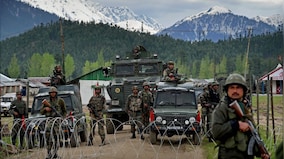)
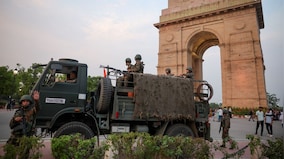)
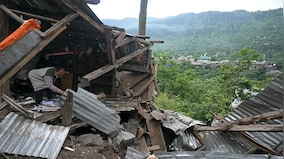)
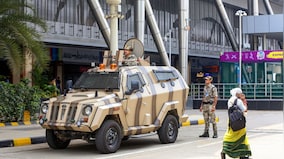)
)
)
)
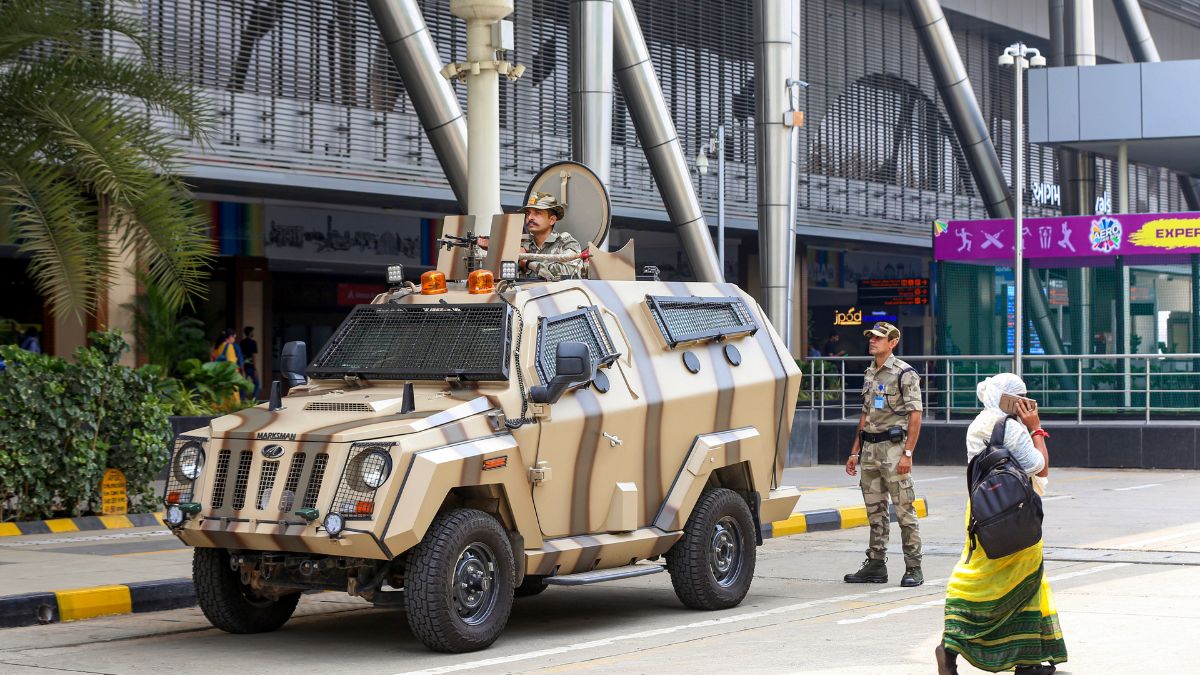)